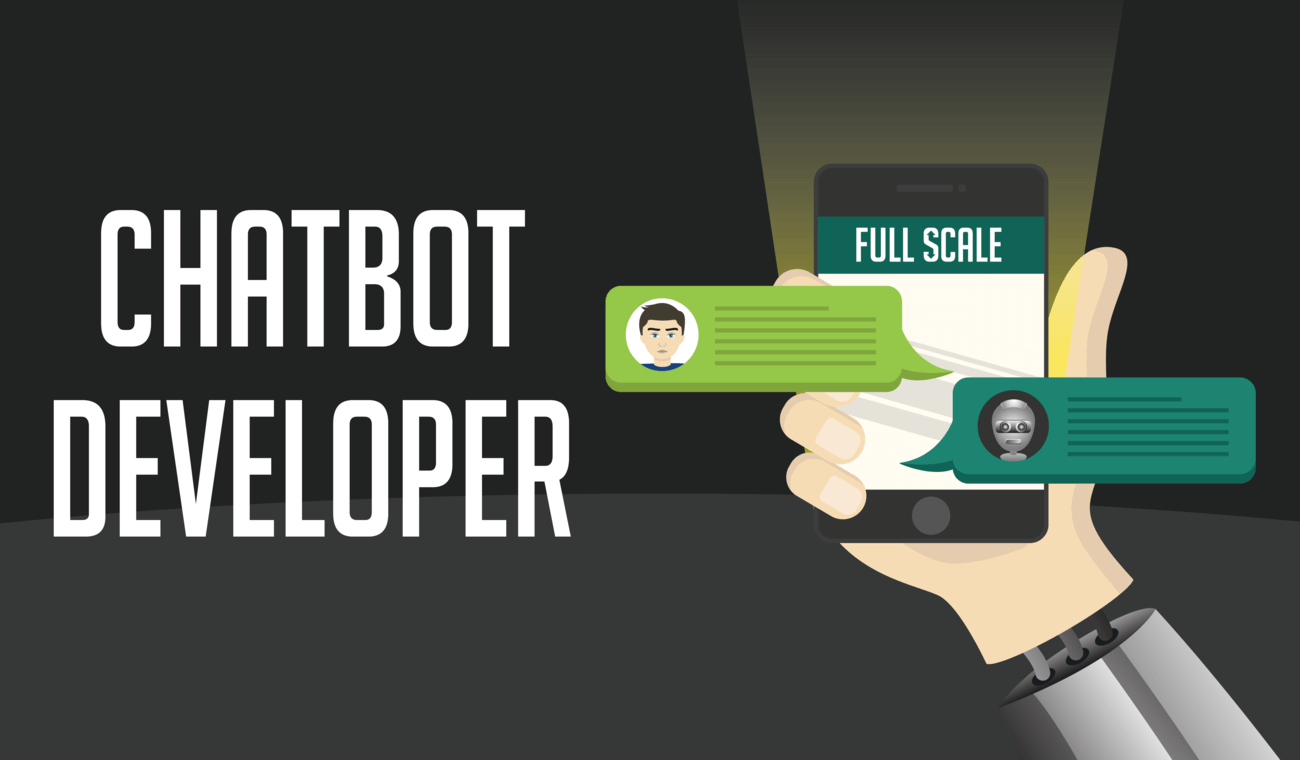
Chatbots are now essential resources for companies all around the world, not just experimental additions on websites. Chatbots driven by AI are revolutionizing lead generation, customer service, sales automation, and even healthcare support in 2025. Large language models (LLMs) and generative artificial intelligence (AI) have made chatbot creation one of the fastest-growing digital job categories.
This article will cover everything you need to know about becoming an AI chatbot developer in 2025, from the essential tools and skills to employment titles, career opportunities, and expected salaries, if you’re interested in creating intelligent conversational agents.
Why Become a Chatbot Developer in 2025?
The global chatbot market is projected to surpass $27 billion by 2030, growing at an impressive rate. Businesses across industries—eCommerce, healthcare, fintech, travel, and education—are adopting chatbots to reduce costs and improve customer engagement.
Becoming a chatbot developer today means:
- Entering a high-demand tech career.
- Working with cutting-edge technologies like Generative AI, NLP, and machine learning.
- Having diverse job opportunities in startups, enterprises, and even freelance markets.
- Building solutions that directly impact customer experience.
Skills You Need to Become a Chatbot Developer
To build AI chatbots that are functional, scalable, and user-friendly, you’ll need both technical and non-technical skills:
1. Programming Skills
- Python – Widely used for AI/ML and NLP.
- JavaScript / Node.js – Essential for backend integrations and building real-time chat interfaces.
- Java, C#, or Go – Useful for enterprise-grade chatbot applications.
2. Natural Language Processing (NLP)
A core skill for chatbot developers is understanding how machines process human language. You’ll need to learn:
- Tokenization, sentiment analysis, and intent recognition.
- Tools like spaCy, NLTK, or Stanford NLP.
- Modern LLM integration with GPT-based models or Rasa NLU.
3. Conversational Design
A chatbot is only as good as its user experience. Learn:
- Writing natural conversation flows.
- Handling fallbacks and clarifications.
- Designing intuitive dialogue trees.
4. AI & Machine Learning Knowledge
Since modern chatbots are powered by Generative AI, you should understand:
- Machine learning basics (classification, clustering).
- Deep learning frameworks like TensorFlow and PyTorch.
- Fine-tuning large language models for chatbot use.
5. API & Database Knowledge
Chatbots often need to connect with CRMs, ERPs, or payment gateways. You should know how to:
- Work with RESTful APIs & GraphQL.
- Manage structured/unstructured data with SQL & NoSQL databases.
6. Cloud Platforms
Most AI chatbot development services are deployed on the cloud. Gain expertise in:
- AWS Lex, Microsoft Bot Framework, Google Dialogflow.
- Scalable deployments on Azure or Google Cloud AI.
7. Soft Skills
- Problem-solving mindset.
- Ability to collaborate with cross-functional teams.
- Strong communication to explain tech concepts to non-technical stakeholders.
Tools Every Chatbot Developer Should Know in 2025
Chatbot development has matured with powerful platforms and frameworks. As a developer, mastering these tools will give you a strong edge:
- Dialogflow (Google) – NLP-powered chatbot development.
- Rasa – Open-source conversational AI framework for custom chatbots.
- Microsoft Bot Framework – Enterprise-grade chatbot development tool.
- Botpress – Open-source bot builder with a modular design.
- IBM Watson Assistant – AI-powered chatbot platform for enterprises.
- LangChain & LlamaIndex – Tools for integrating LLMs in chatbots.
- TensorFlow & PyTorch – For training custom NLP models.
Career Path of a Chatbot Developer
Becoming a chatbot developer opens doors to multiple career paths:
- Chatbot Developer / Engineer – Building and maintaining chatbots.
- AI/NLP Engineer – Specializing in natural language processing.
- Conversational UX Designer – Designing chatbot conversation flows.
- AI Product Manager – Leading chatbot product development.
- Generative AI Developer – Building advanced AI-powered assistants.
You can also specialize in industry-specific chatbot solutions like healthcare bots, banking assistants, or eCommerce chatbots.
Salary of a Chatbot Developer in 2025
Chatbot developers are in high demand, and salaries are competitive:
- Entry-Level Developer: $70,000 – $90,000/year (₹8–12 LPA in India).
- Mid-Level Developer: $90,000 – $120,000/year (₹12–18 LPA in India).
- Senior AI/Chatbot Engineer: $120,000 – $160,000/year (₹18–25 LPA+ in India).
- Freelancers/Consultants: $40–$100/hour, depending on expertise.
With Generative AI development expertise, salaries are significantly higher, as businesses pay a premium for advanced skills.
Steps to Become a Chatbot Developer in 2025
Here’s a roadmap to kickstart your career:
- Learn the basics of programming (Python, JavaScript).
- Study NLP & machine learning fundamentals.
- Experiment with chatbot platforms like Dialogflow or Rasa.
- Build projects (customer support bots, eCommerce assistants).
- Learn cloud deployment (AWS, Azure, Google Cloud).
- Stay updated with new AI trends (Generative AI, LLM integration).
- Create a portfolio to showcase your chatbot projects.
- Apply for jobs or freelance projects in chatbot development.
Future Scope of Chatbot Developers
In 2025 and beyond, chatbot development will expand beyond customer service into:
- AI-powered personal assistants.
- Healthcare chatbots for diagnostics and telemedicine.
- Voice-activated chatbots for smart devices.
- Multimodal chatbots combine text, voice, and visual responses.
- AI-powered SaaS chatbots for niche business solutions.
The future looks bright for developers who specialize in AI chatbot development services and adapt to fast-evolving technologies.
Final Thoughts
Becoming a chatbot developer in 2025 is not just about coding—it’s about mastering AI, NLP, and Generative AI development to create intelligent, scalable, and user-friendly conversational agents.


